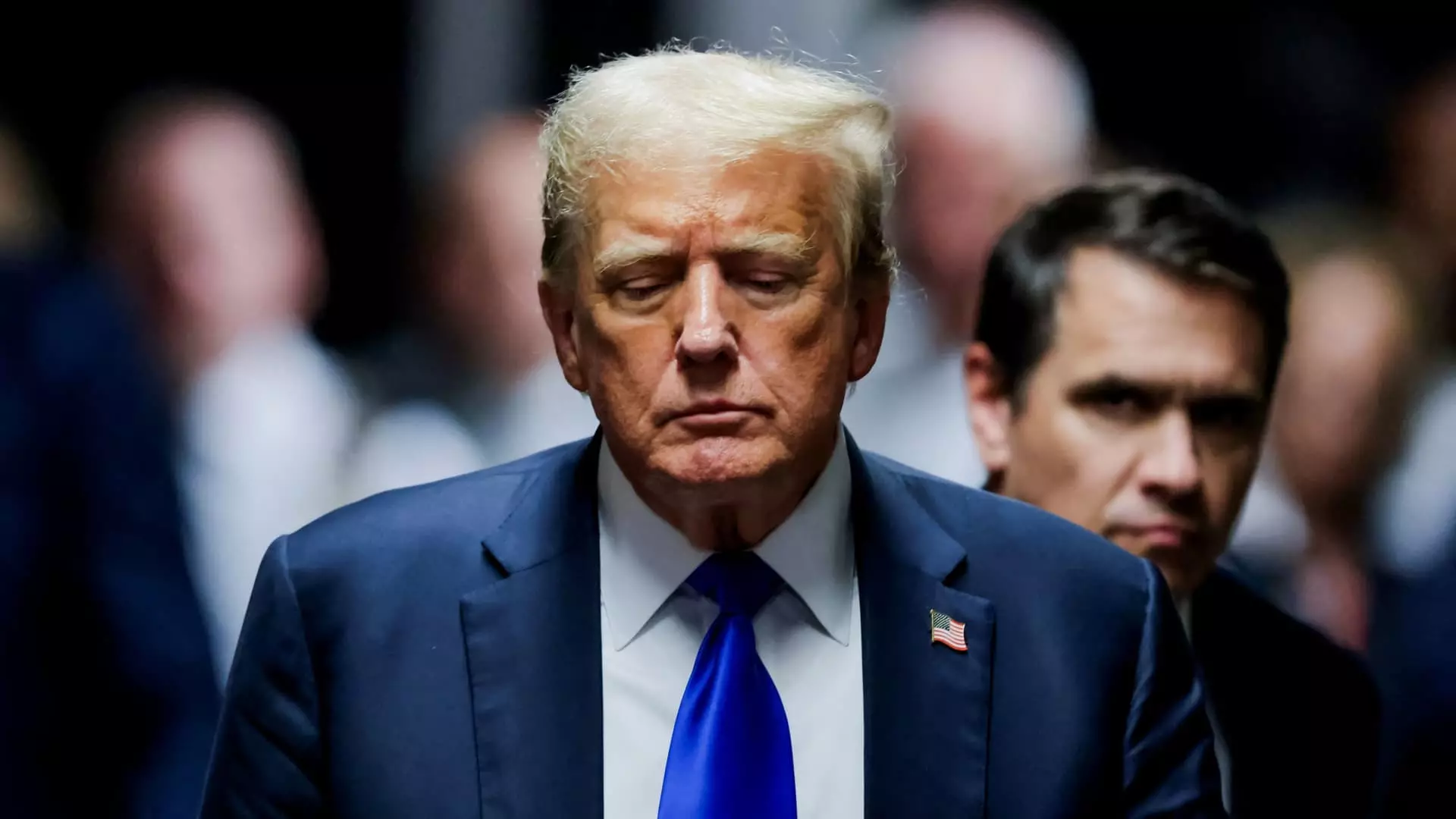The unprecedented legal challenges faced by former President Donald Trump have cast a long shadow over American politics, raising questions about the boundary between political authority and criminal accountability. Recently, Trump’s appeal to dismiss a criminal conviction related to hush money payments was decisively rejected by a New York court, a ruling that underscores the intricate relationship between legal proceedings and political power. This article will analyze the implications of this case within the broader context of Trump’s controversial presidency and the ongoing issues surrounding his legal troubles.
Central to Trump’s defense was the assertion of presidential immunity, which his legal team argued should shield him from prosecution for acts committed while in office. Citing a U.S. Supreme Court ruling from July, Trump’s lawyers claimed that the former president exercised official authority when arranging hush money payments to silence allegations about his personal life. However, Manhattan Supreme Court Judge Juan Merchan’s ruling firmly rejected this notion, highlighting that while a president may have immunity for official acts, this particular case concerned personal conduct, which does not fall under the same protections. This distinction not only calls into question the extent of presidential power but also raises concerns about the accountability of public officials for actions taken outside the scope of their official duties.
Merchan’s decision to frame the evidence as primarily centered around “decidedly personal acts of falsifying business records” presents a legal precedent. It asserts that even sitting presidents are not above the law when their conduct veers into personal misconduct, thus affirming the principle that no one is above accountability. The ruling may serve as a cautionary example for future public officials, indicating that engagement in unlawful personal transactions can lead to dire consequences, regardless of their political position.
In examining the specifics of the case, it is impossible to ignore the details surrounding the $130,000 payment made to adult film actress Stormy Daniels. The transaction, executed by Trump’s former lawyer Michael Cohen just days before the 2016 presidential election, remains at the heart of this legal battle. Cohen’s testimony, which played a pivotal role in the case, underscored the intent behind the payment: securing Daniels’ silence on an alleged affair with Trump. Although Trump has adamantly denied any sexual encounter, the revelations and the ensuing cover-up attempts have complicated his legacy, painting a picture of a leader entangled in scandal.
The timing of the payment adds another layer of complexity to the case. Occurring just before a critical election, it raises ethical questions about the potential impact of such actions on the democratic process. Voters deserve transparency, and the use of hush money can undermine trust not only in the individuals involved but also in the political system as a whole.
Trump’s legal battles have elicited starkly divided responses from his supporters and detractors. While Trump’s allies decry the proceedings as a politically motivated “witch hunt,” critics argue that the legal system must function independently and without bias, serving as a necessary check on those in power. The rhetoric surrounding the case has further polarized public opinion, infusing it with the complexity of partisan beliefs.
The Manhattan District Attorney’s Office has suggested delaying Trump’s sentencing until his term concludes, signaling the rare consideration given to a former president. Such leniency raises questions about equity in legal proceedings: should the highest elected officials receive different treatment than ordinary citizens? This situation illustrates the tension between ensuring justice and maintaining the integrity of the office held by such individuals.
As Trump’s legal counsel prepares to navigate the appeals process, the outcome of this and other related cases remains uncertain. The ramifications of a potential conviction extend beyond just personal consequences for Trump; they encompass broader implications for American democracy, the rule of law, and the precedents set for future leaders.
The unfolding saga of Trump’s legal challenges highlights the critical interplay between politics and law, serving as a reminder that all individuals—even those who once wielded the highest power—must ultimately answer to the principles of justice and accountability. As the legal proceedings continue, the national conversation surrounding these issues will undeniably shape the future landscape of American governance.

Leave a Reply